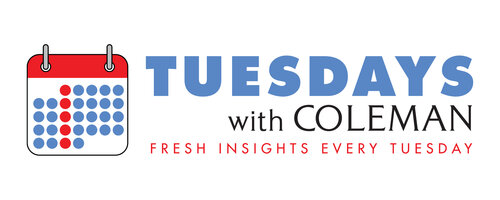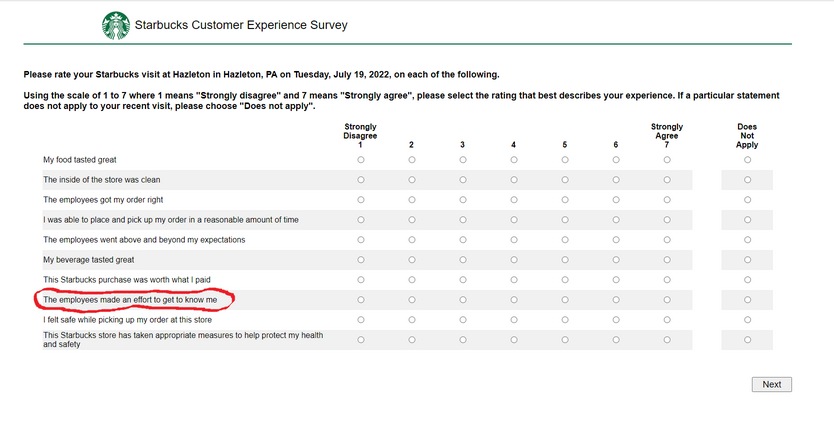
As a Starbucks Gold Card member, I’m used to getting periodic customer surveys from the company about my experiences at specific stores on certain dates. Most of the questions are straightforward and related to items that include food quality, store cleanliness, speed of service, and Covid protocols. But there’s a question that has bugged me for years. It annoys my family because I bring it up every time I get the survey.
Starbucks asks you to rate, using a 1 to 7 scale from “Strongly Disagree” to “Strongly Agree,” whether “The employees made an effort to get to know me.”

In the, oh…one or two times I’ve been in a Starbucks store or drive-thru when there was no line, I have in fact had a nice quick conversation with the barista. But the other 99% of the time, it is an eye of the hurricane, hair on fire situation behind the counter with overworked employees doing their best just to keep up. And, I think they do a pretty great job of it. But you know what they don’t have time for?
“Getting to know me.”
NBC News recently revealed that question is pretty important to Starbucks. So much so, that they use the “connection score” in evaluating store performance. Many workers say the connection score system has even helped drive union organizing efforts around the country.
In designing and analyzing questionnaires, we’re constantly asking ourselves and our clients what value and action can be taken from the answers to every question. And despite the fact that Starbucks added a “Does Not Apply” button you could conceivably check for the “getting to know me” question, it doesn’t seem quite fair to expect employees to have enough time to ensure “my food tasted great,” “got my order right,” prepared my order “in a reasonable amount of time” and “made an effort to get to know me.”
Seems like a lot to ask.
I love that Starbucks utilizes surveys, and like how they integrate questions within seasonal games on the app. But whether we’re talking about Starbucks, your brand, or any brand, we often come back to the “Three Best Practices of Questionnaire Development” outlined by our Senior Vice President of Research, David Baird:
#3: Ask the most important questions in the beginning.
#2: Don’t ask qualitative questions in a quantitative project.
And #1, the one that applies the most to the Starbucks example:
Ask questions that will provide actionable information. Make sure they are realistic and fair, and provide a path to make positive changes to the brand.
